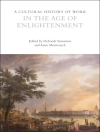This book is about the impact of decolonisation on British civic society in the 1960s. It shows how participants in middle class associational life developed optimistic visions for a post-imperial global role. Through the pursuit of international friendship, through educational efforts to know and understand the world, and through the provision of assistance to those in need, the British public imagined themselves as important actors on a global stage. As this book shows, the imperial past remained an important repository of skill, experience, and expertise in the 1960s, one that was called upon by a wide range of associations to justify their developing practices of international engagement. This book will be useful to scholars of modern British history, particularly those with interests in empire, internationalism, and civil society. The book is also designed to be accessible to undergraduates studying these areas.
Tabela de Conteúdo
Introduction
1 Imperial lives and Commonwealth visions
2 International mobility and the pursuit of informed understanding
3 Friendship, hospitality, and the hierarchies of affective international relationships
4 Philanthropic connections and Britain’s ‘lost vocation’
5 Christian responsibility in a shrinking world
Conclusion
Index
Sobre o autor
Anna Bocking-Welch is Lecturer in British and Imperial History at the University of Liverpool












